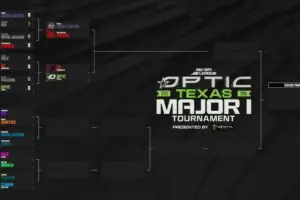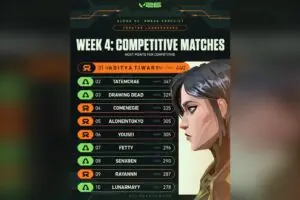Valve is looking to encourage multi-team ownership within Counter-Strikee: Global Offensive; the juggernaut of competitive shooters that combines a masterclass level of strategy and forethought with the raw skill of aim. Counter-Strike has been a mainstay since the original mod that stemmed from Half-Life pieced together a frantic team versus team title that has since branched from Valve and has become one of the greatest competitive titles of all time for first-person shooters. League of Legends and DOTA 2 can both put CS: GO through the paces in terms of viewership, but nothing can come close to Counter-Strike’s staying power that has been a PC gaming mainstay since November 8, 2000.
Yet with this can come some vulnerabilities – perhaps issues that arise solely from Counter-Strike being the apex of competition in the modern era. We’ve seen issues come and go that range from what precisely qualifies as a Major, substitutions half-way through tourneys, and every patch that Valve pushes through Counter-Strike: Global Offensive is analyzed with a fine-toothed comb by far more users than one would like to admit.
The current issue that is stemming from the popularity of CS: GO is one of multi-team ownership, and the conversation boils down to the match played today for ESL One that pitted MIBR against Yeah! Gaming.
The question primarily boils down to a conflict of interest, and whether that can generate lopsided results as one team may be eager to give another team an easy win; sharing that knowledge with select individuals to ensure that gambling on the outcome can result in a hefty payout for those in the know. It brings the entirety of the validity of the esport into question for some, mimicking boxers taking a fall in a specific round so the inevitable bad actors can cash out like kings.
Yeah! Gaming was founded by many members of MIBR to help encourage growth of Counter-Strike: Global Offensive competition in Brazil, and the roster is hand-picked by the same stars that helped fund the team: ‘TACO’, ‘coldzera’, ‘zews’, ‘FalleN’, and ‘dead’. Epitacio ‘TACO’ de Melo and Ricardo ‘dead’ Sinigaglia are both on the roster for MIBR; other players belong to various other organizations within the esport.
Valve officially weighed in and allowed the match to continue, stating that MIBR and Yeah! Gaming have both announced the conflict of interest to allow public discussion, but for some that isn’t enough.
It’s worth noting that MIBR slapped Yeah! Gaming in two maps, with the second map turning into a decent battle that stretched into overtime.
It seems to open a door that could be difficult to shut, and the future of Counter-Strike: Global Offensive as the pinnacle of competitive esports could very well rest in decisions that were made today.





